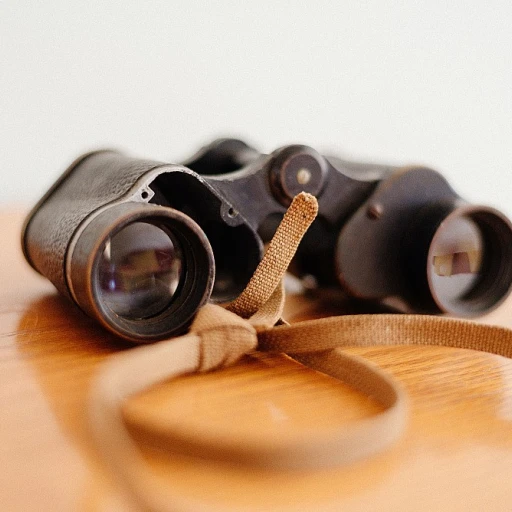Understanding the Purpose of HR Interview Questions
The Role of HR Interview Questions in Job Selection
HR interview questions are more than just queries about your skills and experience. They serve a crucial role in the job selection process, helping interviewers assess a candidate's potential fit within their organization. Understanding the motivation behind these questions can significantly enhance your performance in an interview. HR professionals use their questions to evaluate key attributes such as communication skills, problem-solving abilities, and cultural fit. By asking targeted questions, they aim to gauge your potential to contribute effectively to their team and align with the company's values and goals. Beyond specific job-related skills, HR questions often delve into areas like leadership, teamwork, and career aspirations. This broad approach provides a more comprehensive picture of a candidate's suitability for a role. For those keen on making a positive impression, it’s vital to grasp the underlying purpose behind the questions asked. For more insights on how to excel in your HR interview, consider checking out these essential tips for nailing your HR job interview.Common HR Interview Questions and How to Answer Them
Decoding Frequently Asked HR Interview Questions
Navigating through HR interviews can often feel like walking through a maze if you’re unprepared. Having an understanding of the typical questions that might come your way not only helps in boosting your confidence but also allows you to provide answers that truly reflect your abilities and aspirations.Tell Us About Yourself
Almost every interview kicks off with this seemingly simple question, but the intent behind it is more profound than you might think. Interviewers are looking to gauge your communication skills, your ability to summarize experiences coherently, and how you perceive your career trajectory. Crafting a succinct, engaging narrative that maps your journey and resonates with the role can help in setting a positive tone for the rest of the interview.Why Do You Want to Work Here?
Employers aim to identify candidates who are not just looking for any job but are genuinely motivated to contribute to their organization. Your response should demonstrate research enthusiasm and align your career objectives with the company’s mission and culture. Express unique aspects of the company that excite you and give reasons affirming how the job matches your career goals.What Are Your Strengths and Weaknesses?
This question tests your self-awareness and honesty. Highlighting specific strengths that directly tie into the job’s requirements can be very effective, while also demonstrating how you are actively working on areas you wish to improve. Remember, it’s not just about acknowledging weaknesses but showing a learning mindset and commitment to growth. For an in-depth guide on polishing your answers, consider checking out some essential tips for nailing your HR job interview.Can You Describe a Challenge You Overcame at Work?
This is your opportunity to showcase problem-solving skills and resilience. Frame your answer using the STAR method (Situation, Task, Action, Result) to provide a structured and compelling story. Emphasize your proactive approach to solving problems, your ability to work under pressure, and the positive outcome of your actions. Mastering these questions goes beyond seeking the 'perfect' answer—it's about weaving your narrative in a manner that aligns with the values and expectations of HR professionals. By effectively articulating your experiences, skills, and career aspirations, you pave the way to a successful interview outcome.Highlighting Your Skills and Experience
Showcasing Your Skills with Confidence
In an HR interview, articulating your skills and experience is pivotal. When preparing for common HR interview questions, it's essential to identify the skills that align with the requirements of the job you are pursuing. For example, if you're applying for a role that demands strong communication skills, prepare to share examples from your previous roles where you effectively communicated complex information to diverse audiences. Start by reviewing the job description to pinpoint the key skills sought after by the employer. Then, reflect on your past work experience and consider specific instances where you've demonstrated these skills effectively. This approach not only helps you present your capabilities with confidence during the interview but also shows you have thoughtfully prepared for the role. Another strategy for showcasing your skills is to implement the STAR method—Situation, Task, Action, and Result. This technique assists in structuring your responses by walking the interviewer through a situation, the task at hand, the actions you took, and the outcomes achieved. Not only does this clarify your thought process, but it also highlights your ability to contribute positively to a potential employer's objectives. Additionally, don't shy away from discussing skills that may not be directly mentioned in the job description but could be beneficial in the role. For instance, if you're inherently adept at problem-solving or demonstrate a keen eye for detail, provide examples to substantiate these strengths and how they can bring added value. By articulating your skills thoughtfully and comprehensively, you position yourself as a strong candidate for the role. For more detailed insights on preparing for HR interviews, explore this guide on getting ready for HR job interviews. This resource delves into strategies that can further refine and enhance your interview preparation.Demonstrating Leadership and Teamwork
{ "result": "Exhibiting Leadership Skills
\n\nIn today's competitive job market, the importance of demonstrating leadership in your HR interview cannot be overstated. Employers are not just looking for individuals who can complete tasks; they are in search of proactive team players who can lead and inspire others. Leadership questions often take the form of specific scenarios, asking you to describe past experiences where you showcased these skills.\n\nTo effectively answer such questions, it's crucial to provide detailed examples. Think back to instances where you've successfully led a project or team. Highlight the strategies you employed to motivate your team, manage challenges, and achieve objectives within the deadline. Provide context around the situation, the actions you took, and the positive outcomes that resulted.\n\nBeing able to articulate your leadership style and influence on past projects will illustrate your capability to handle similar responsibilities in the role you're applying for. And remember, leadership is not just limited to formal management roles. If you have mentored a colleague, taken the initiative to improve team workflows, or facilitated communication within a group, these are also potent examples worth mentioning.\n\nCollaborative Teamwork
\n\nTeamwork is another aspect that HR professionals carefully assess during interviews. After all, most roles require a level of collaboration, and recruiters prefer individuals who thrive in a team setting. When addressing teamwork questions, it's beneficial to highlight your ability to work harmoniously with diverse groups.\n\nSometimes, interviewers might ask about how you handle team conflicts or support a team member struggling with an assigned task. You should be prepared with anecdotes from your experience where you contributed to or facilitated a team's success. Focus on times you provided support, helped overcome obstacles, or contributed to team synergy. Emphasize adaptability, communication, and patience as key components in achieving collective goals.\n\nBy effectively displaying leadership and teamwork capabilities, you reassure potential employers that you possess not only the technical skills necessary for the position but also the interpersonal and management prowess that can elevate their working environment."\n}Addressing Career Goals and Job Transitions
Aligning Your Career Aspirations with the Role
When discussing your career goals during an HR interview, it's crucial to connect your aspirations with the potential position you're applying for. This shows a clear trajectory in your professional journey and demonstrates how the role fits into your career plan. Employers are interested in candidates who are not only looking for a job but also see the role as an integral step in their career growth.Start by understanding the company's mission and values, as well as the long-term career opportunities it offers. Reflect on how these align with your own goals and be prepared to articulate this alignment clearly during the interview. For instance, if you aim to develop your managerial skills, and the company is renowned for leadership development programs, mention how these programs would contribute to your career plan.
Navigating Job Transitions
Explaining job transitions can be challenging, but it is a common topic in HR interviews. Whether you're changing industries, roles, or progressing within your field, make sure to provide a cohesive narrative that highlights your adaptability, learning willingness, and forward-thinking attitude.Discuss the skills and experiences gained in previous roles that are transferable to the new position. Focus on the positive reasons for your transitions rather than any negative factors. This could involve pursuing new challenges, personal growth, or aligning with your career ambitions and the company's objectives.
Remember, your goal is to present yourself as a proactive and thoughtful professional who is committed to evolving in their career. Having a solid explanation for your job transitions can be a powerful way to leave a lasting impression on the interviewers.
For more insights on how to craft compelling narratives about your career goals and job transitions, explore our article here.








